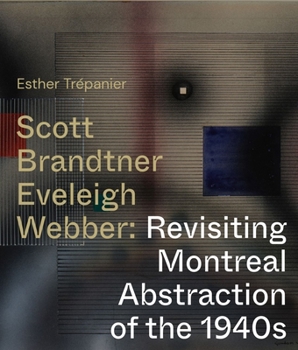Scott, Brandtner, Eveleigh, Webber: Revisiting Montreal Abstraction of the 1940s
Four artists who are today relatively or almost entirely unknown - one woman and three men - nevertheless played a part in the aesthetic upheavals that led to abstraction in 1940s Montreal. Very active in the art milieu throughout the decade, Marian Dale Scott, Fritz Brandtner, Henry Eveleigh, and Gordon Webber captured the attention of critics of the time, who employed the term "abstract art" to describe both non-objective works and bold formal explorations that retained some reference to visible reality. An examination of these artists' practices reveals a remarkable openness to international contemporary art trends - French, German, British, and American. Their work and its critical reception conjure a complex picture of the debates on abstraction that took place in Montreal during the 1940s, so often reduced to the controversies surrounding the emergence of the Automatiste movement. The artistic innovations of Paul- mile Borduas and his group and the radical tone of their 1948 manifesto Refus global cemented their status as Quebec's abstract avant-garde but also had the effect of eclipsing other visions of abstraction being explored during the same period. This book reinstates the oeuvres of these forgotten protagonists in the narrative of abstract art, illustrating how their practices encompassed a variety of themes: emotion, science, human experience in the broadest sense - but also, as the Second World War unfolded, the violence that marked their era.
Format:Paperback
Language:English
ISBN:0228015952
ISBN13:9780228015956
Release Date:October 2022
Publisher:McGill-Queen's University Press
Length:272 Pages
Weight:1.80 lbs.
Dimensions:0.5" x 8.4" x 9.9"
Customer Reviews
0 rating





